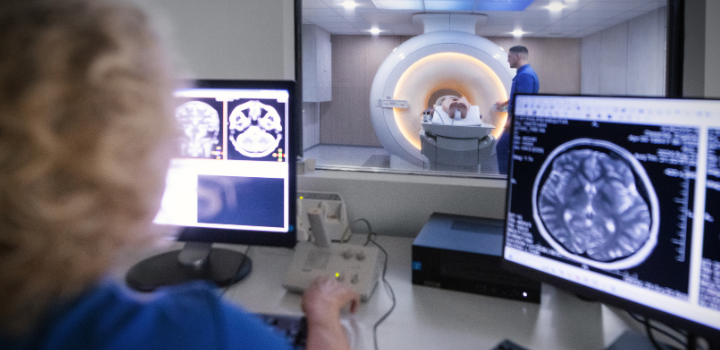New prescription register could save NHS £300m annually and transform patient care
By: Communications

A UK-first initiative focused on integrating specific prescriptions into routine healthcare records could save the NHS £300m annually.
The Norfolk Biologics Register is an initiative designed to support safe clinical care of patient-prescribed biologics, led by researchers from the University of East Anglia (UEA) and involving the Norfolk & Norwich University Hospital, Norfolk GPs and NHS Norfolk & Waveney Integrated Care Board (ICB).
Biologics are a group of medicines with a targeted action, used to treat conditions such as inflammatory arthritis, Crohn's disease, psoriasis and age-related macular degeneration. They are typically prescribed within hospitals as they require close monitoring, meaning they are not routinely captured within the central prescriptions within the NHS, and are therefore not visible within a person’s GP medication record.
This new register would be a significant and impactful change by capturing all biologic information to ensure it is visible in a patient’s GP record, making it easier for healthcare providers to coordinate patient care. Current registers in existence are only for single specialist areas or diseases.
Development of this register has been led by Dr Max Yates, Consultant Clinical Associate Professor at UEA, in line with NHS England strategy and with support from the Norwich Epidemiology Centre and ECLIPSE.
The initiative could identify patients who would benefit most from biosimilar medicines, which would be a cheaper alternative to their current biologics, without compromising on quality of treatment. These savings could lead to NHS cost savings of £300m annually.
It will also help to address the Government’s three big shifts within the NHS: “analogue to digital”, “hospital to community” and “sickness to prevention”.
As an example, the integration of biologic prescribing data into routine GP care records would allow hospital specialists and GPs to be joined-up on patient care more effectively, due to all information being in one place. This will ensure improved oversight, safety, and monitoring of patients, irrespective of whether they work in the community or at the hospital.
Regional impact for patients and healthcare system in Norfolk
This new register is currently being trialled in Norfolk. One GP practice will be used as a pilot, before the register is rolled out to integrated care boards ICBs and the wider region. The aim is for each ICB to have their own version, to eventually allow for the formation of a united national register for all biologics.
Led by Dr Yates, the UEA team have been working with ICBs in the eastern region to develop a portal called BIOGUIDE, which will direct users to the Norfolk Biologics Register.
The register will be integrated fully into the NHS app for ease of access. Access cards will be held by patients themselves, with access granted to authorised practitioners and healthcare professionals directly involved in their care. This puts patients in charge of who they share their healthcare information with when attending appointments with clinicians and practitioners.
In addition, ECLIPSE’s data analytics capabilities align with the 10-Year Health Plan for the NHS to predict health outcomes and address inequalities, helping the NHS to ensure fair access and effective treatment.
Related Articles

UEA launches study after supplement shows promise in professional racing drivers
Researchers at the University of East Anglia (UEA) are launching a new study to see whether American ginseng extract could boost brain health.
Read more
UEA to receive share of £15 million funding boost for region
University of East Anglia researchers have been awarded a share of £15.3 million to tackle real-world health and care challenges across the region and beyond.
Read more
MRI scan breakthrough could spare thousands of heart patients from risky invasive tests
Doctors may soon be able to tell just how sick a heart failure patient really is by using a routine MRI scan, thanks to new research from the University of East Anglia (UEA).
Read more